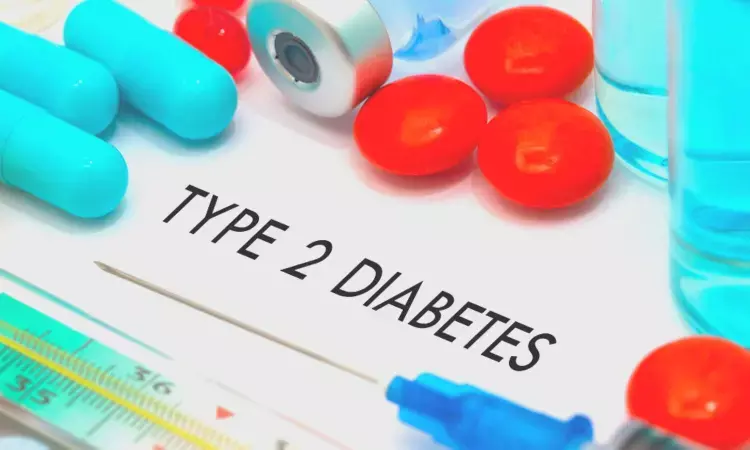- Home
- Medical news & Guidelines
- Anesthesiology
- Cardiology and CTVS
- Critical Care
- Dentistry
- Dermatology
- Diabetes and Endocrinology
- ENT
- Gastroenterology
- Medicine
- Nephrology
- Neurology
- Obstretics-Gynaecology
- Oncology
- Ophthalmology
- Orthopaedics
- Pediatrics-Neonatology
- Psychiatry
- Pulmonology
- Radiology
- Surgery
- Urology
- Laboratory Medicine
- Diet
- Nursing
- Paramedical
- Physiotherapy
- Health news
- Fact Check
- Bone Health Fact Check
- Brain Health Fact Check
- Cancer Related Fact Check
- Child Care Fact Check
- Dental and oral health fact check
- Diabetes and metabolic health fact check
- Diet and Nutrition Fact Check
- Eye and ENT Care Fact Check
- Fitness fact check
- Gut health fact check
- Heart health fact check
- Kidney health fact check
- Medical education fact check
- Men's health fact check
- Respiratory fact check
- Skin and hair care fact check
- Vaccine and Immunization fact check
- Women's health fact check
- AYUSH
- State News
- Andaman and Nicobar Islands
- Andhra Pradesh
- Arunachal Pradesh
- Assam
- Bihar
- Chandigarh
- Chattisgarh
- Dadra and Nagar Haveli
- Daman and Diu
- Delhi
- Goa
- Gujarat
- Haryana
- Himachal Pradesh
- Jammu & Kashmir
- Jharkhand
- Karnataka
- Kerala
- Ladakh
- Lakshadweep
- Madhya Pradesh
- Maharashtra
- Manipur
- Meghalaya
- Mizoram
- Nagaland
- Odisha
- Puducherry
- Punjab
- Rajasthan
- Sikkim
- Tamil Nadu
- Telangana
- Tripura
- Uttar Pradesh
- Uttrakhand
- West Bengal
- Medical Education
- Industry
Liraglutide and insulin glargine score over other diabetes drugs for diabetics already maintained on metformin

Liraglutide and insulin glargine performed the best of other FDA-approved glucose-lowering medications to maintain blood glucose levels in the recommended range among diabetes patients already maintained on metformin.
USA: All four medications, namely glargine, glimepiride, liraglutide, or sitagliptin, when added to metformin, reduce the levels of glycated hemoglobin, a recent study in the New England Journal of Medicine has stated. Glargine and liraglutide were modestly more effective in achieving and maintaining the target Hemoglobin A1C (HbA1c) levels.
The comparative effectiveness of glucose-lowering medications with metformin for maintaining target glycated hemoglobin levels in type 2 diabetes patients is uncertain. The GRADE Study Research Group aimed to compare the effectiveness of four commonly used glucose-lowering medications. The trial included patients with type 2 diabetes of fewer than ten years who received metformin and had HbA1c levels of 6.8 to 8.5%.
Blood glucose management is critical for maintaining good health in people with Type 2 diabetes. For the study, the participants were randomly assigned to receive insulin glargine U-100 (glargine), the glucagon-like peptide-1 receptor agonist liraglutide, the sulfonylurea glimepiride, or the dipeptidyl peptidase four inhibitor sitagliptin. The study's primary metabolic outcome was a glycated hemoglobin level, measured quarterly, of 7.0% or higher that was subsequently confirmed. The secondary metabolic outcome was guaranteed a glycated hemoglobin level greater than 7.5%.
The study included 5047 participants who were getting metformin for type 2 diabetes. They were followed for a mean of 5 years.
The study led to the following findings:
- The primary metabolic outcome differed significantly among the four groups; the rates with glargine (26.5 per 100 participant-years) and liraglutide (26.1) were similar and lower than those with glimepiride (30.4) and sitagliptin (38.1).
- The differences among the groups concerning a glycated hemoglobin level greater than 7.5% (the secondary outcome) paralleled those of the primary outcome.
- There were no material differences concerning the primary outcome across prespecified subgroups defined according to sex, age, race, or ethnic group; however, among participants with higher baseline glycated hemoglobin levels, there appeared to be an even more significant benefit with glargine, liraglutide, and glimepiride than with sitagliptin.
- Severe hypoglycemia was rare but significantly more frequent with glimepiride (in 2.2% of the participants) than with glargine (1.3%), liraglutide (1.0%), or sitagliptin (0.7%).
- Participants who received liraglutide reported more frequent gastrointestinal side effects and lost more weight than the other treatment groups.
"Addition of all four medications (as described above) to metformin decreased glycated hemoglobin levels," the researchers wrote.
"Glargine and liraglutide, however, were significant, albeit modestly, more effective in achieving and maintaining target glycated hemoglobin levels," they noted.
"There have not been head-to-head comparisons. There is not one single answer for all people with this trial," Robert Cohen, professor, Division of Endocrinology, Diabetes, and Metabolism in the Department of Internal Medicine at the UC College of Medicine and lead investigator at the UC/VA test site. "I think it provides some evidence for personalizing diabetes therapy and the concept of personalized medicine."
Reference:
The study, "Glycemia Reduction in Type 2 Diabetes-Glycemic Outcomes," was published in the New England Journal of Medicine. DOI: 10.1056/NEJMoa2200433
Dr Kamal Kant Kohli-MBBS, DTCD- a chest specialist with more than 30 years of practice and a flair for writing clinical articles, Dr Kamal Kant Kohli joined Medical Dialogues as a Chief Editor of Medical News. Besides writing articles, as an editor, he proofreads and verifies all the medical content published on Medical Dialogues including those coming from journals, studies,medical conferences,guidelines etc. Email: drkohli@medicaldialogues.in. Contact no. 011-43720751


